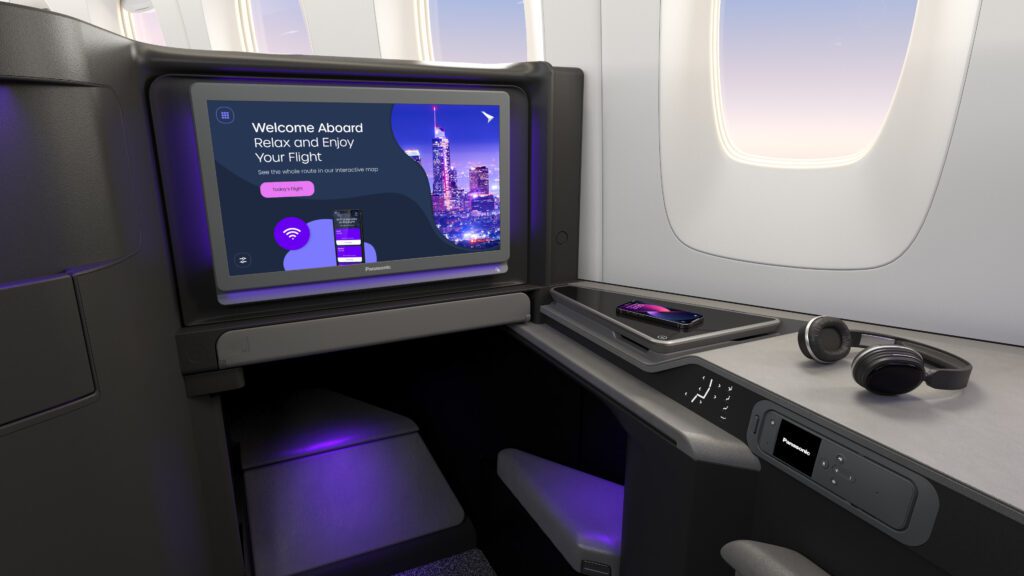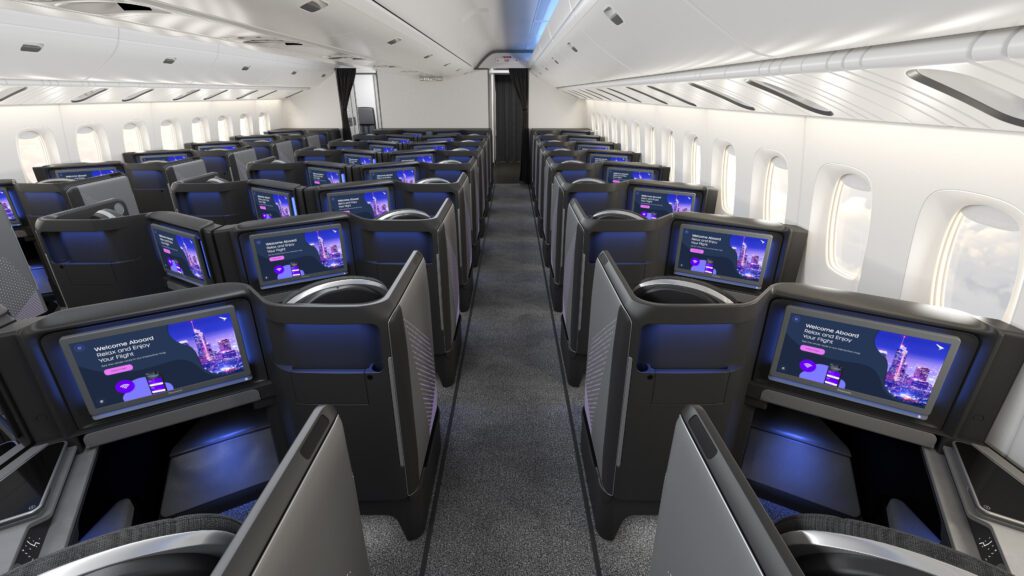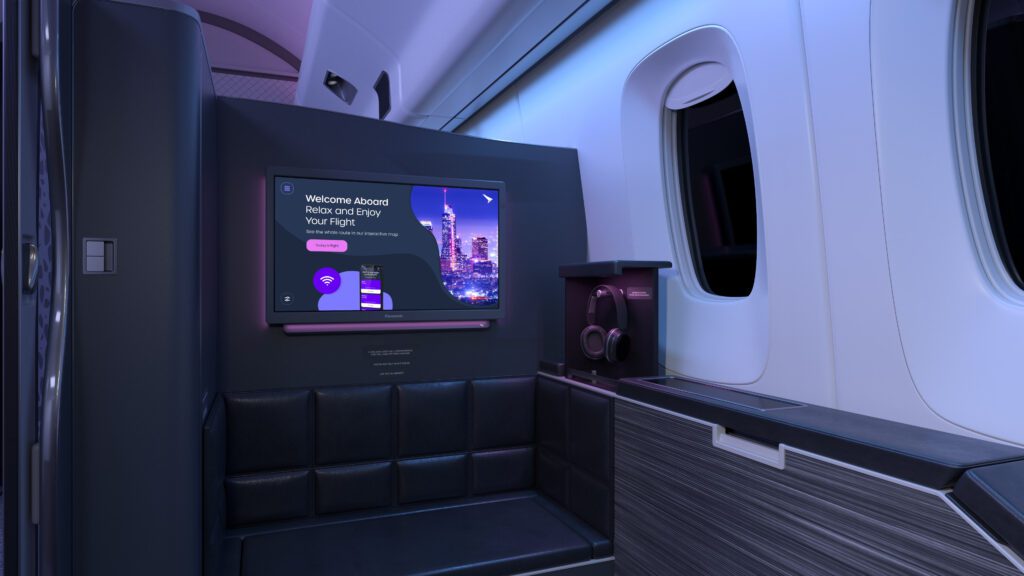Panasonic Avionics has introduced a range of new 4K OLED monitors for First and Business Class cabins, with United having recently announced that they plan to install the system on select new long haul aircrafts beginning in 2025.
The new monitors, which form part of the Astrova In-flight entertainment (IFE) lineup, come in a choice of five sizes maxing out at 42 inches, and also feature spatial audio powered by Panasonic Avionics’ latest Bluetooth technology.
Passengers on aircraft equipped with the new system will also be provided with up to 100W of DC power at their seat through USB-C, along with LED accent lighting designed to enhance the passenger experience and optimize the cabin environment.
“Astrova is transforming the seat back into an easily configured, flexible and personalized digital channel that caters to the individual needs of each passenger, enabling airlines to engage with their customers in flight like never before,” said Andy Masson, vice president of product management at Panasonic Avionics.
At Skift, we are looking to unearth the most creative and forward-thinking innovations in travel through our Skift Ideas Franchise, which includes the Skift IDEA Awards, Skift Editorial Hub and the Skift Ideas Podcast.
You can listen and subscribe to the Skift Ideas Podcast through your favorite podcast app here.



